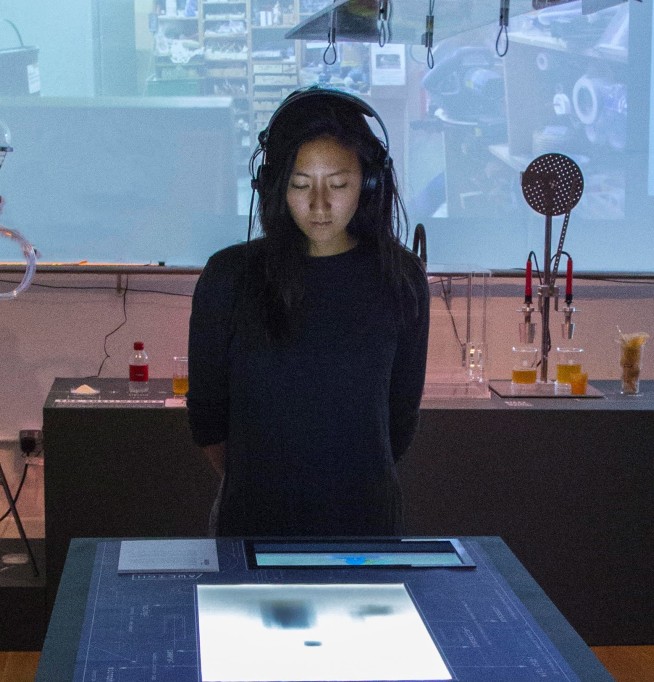
Flora Weil (MSc Innovation Design Engineering 2019) is a Design Researcher at DLX Design Lab Tokyo, a design project jointly established by the University of Tokyo Institute of Industrial Science and Technology and the Royal College of Art. The company aims to create innovative products and services, disseminate design knowledge, and build networks between academia, industry and government agencies.
Some recent projects Flora worked on as lead designer focused on sustainable waste reduction in Japan, creating tools and experiences to make large-scale data easier to understand, and exploring paper batteries as a source of power for disposable diagnostic devices.
Flora has shared her story as a speaker for The Great Exhibition Road Festival event: ‘Innovating for a Greener Future’, alongside fellow alumni Iain Purves and Ryan Mario Yasin. You can explore examples of her design work on her website.
We caught up with Flora to learn more about her work, plans for the future, and thoughts on climate change.
What did you learn during your time at Imperial, in class or out?
The most important thing that I learned was that nothing can be achieved alone. My friends, tutors, and classmates really taught me how essential human relationships are in the process of learning. I really do believe that growth – whether it takes place in human lives or in natural systems – is something that is enabled by connection, interaction, and empathy.
Tell us a bit about the work you’re doing now.
I now work in one of the largest technology research institutes in Japan, as a designer. For the past two years, I have been collaborating with scientists on interdisciplinary projects that aim to transform emerging academic research into new products, platforms, or visions of the future. Many of these projects are designed to foster sustainable development by finding new applications for zero-byproduct materials, democratizing environmental data, or supporting biodiversity-driven forms of production.
How has what you learnt at Imperial helped you in your career so far?
My time at Imperial taught me how to work on fast-paced projects, to draw connections between seemingly disparate disciplines, and to quickly adapt and learn from unknown situations. The current role I have at Design Lab is actually very similar to the IDE programme in terms of project timelines, deliverables, and processes.
What inspired you to drive forward climate action?
Climate change is the biggest challenge of our time – it affects every living organism, every object, every particle. Trying to address that seems like an evidence to me.
What are some of the biggest misconceptions about climate change and global warming?
To me, one of the biggest misconceptions is that global warming can be solved with technology alone. Technologies are not politically or socially neutral – they are created by very precise historical and economic determinants and they tend to reproduce or strengthen certain existing social orders. It’s important to understand that climate change is a problem that is closely tied to issues such as the distribution of wealth, neo-colonialism, and global power dynamics.
What are your plans for the future?
My dream is to someday run my own research and design studio, where I can collaborate with other creatives and explore ideas for making society a place that thinks, grows, and nurtures in a more genuine way.
What would be your advice for current students?
Ask lots of questions and try to realise your weirdest ideas because it will be much harder to do that later.
Are there any inspirational Imperial graduates we should feature in an alumni profile?
I was quite inspired by the peers in my year - interacting with such unique and talented individuals really propelled me forward. Some classmates such as Amir Afshar and Insiya Jafferjee, co-founders of The Shellworks, and Paco Bockelman and Kevin Rouff of Studio ThusThat still inspire me daily.
Flora on her plans for the future
"My dream is to someday run my own research and design studio, where I can collaborate with other creatives and explore ideas for making society a place that thinks, grows, and nurtures in a more genuine way."